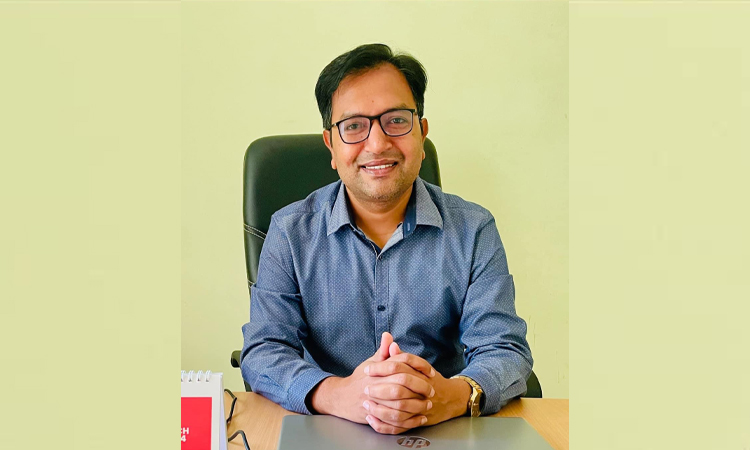

Author: B. M. Saidur Rahman, Project Manager – CRAAB Project
The Syngenta Foundation for Sustainable Agriculture (SFSA), funded by the Hongkong Shanghai Banking Corporation Limited (HSBC), is driving positive change in Bangladesh's Barind region with the Climate Resilient Agricultural Advancement in Barind (CRAAB) project. This multi-faceted initiative aims to empower farmers, enhance agricultural productivity and build resilience against climate uncertainties by December 2025.As part of its comprehensive approach, the CRAAB project incorporates drought-resistant strategies to equip Barind farmers with the tools they need to thrive even in times of water scarcity.
The Barind Tract, a vast and fertile plateau in northwest Bangladesh, faces a critical challenge on water scarcity. This lack of readily available water threatens the region's agricultural productivity, impacting the livelihoods of countless farmers. Several factors contribute to this water crisis like the Barind Tract experiences uneven rainfall distribution, with dry seasons leading to severe water shortages. Second cause is over-reliance on groundwater extraction for irrigation has caused the water table to recede. According to BMDA (Barind Multipurpose Development Authority) they lifted about 3.7 billion liters per year specially in boro season and it is only 30% of total extraction. 70% water lifted by local service providers and farmers for their own irrigation schemes. This makes accessing water more difficult and expensive for farmers. The third reason is the dominance of silty clay soil below the topsoil hinders rainwater infiltration. This leads to a low recharge rate in some areas it is only 5%, meaning aquifers struggle to replenish themselves during the rainy season. Excessive groundwater extraction during dry seasons further exacerbates this problem. Currently, groundwater depths range from a critical 35 meters in the dry season to a concerning 48-60 meters year-round. If unsustainable extraction continues, the region risks desertification.Furthermore, the another most important cause is rising temperatures and changing weather patterns further exacerbate drought conditions, adding stress to the already strained water resources.
This water scarcity has a devastating impact on agriculture in the Barind Tract as insufficient water directly affects crop growth, leading to lower yields and potentially impacting regional food security and when water is scarce, loss of soil organic matter and fertility can occur, further hindering agricultural productivity.Therefore, the farmers struggling with water shortages face economic hardship and may be forced to abandon their land, jeopardizing their livelihoods.
A Brighter Future for Barind
The CRAAB project offers a beacon of hope for the Barind region. By equipping farmers with climate-smart practices and fostering a supportive market system, CRAAB paves the way for a more sustainable and prosperous future for Barind's agricultural sector by improving some Key Focusing Areas:
The project encourages farmers to explore other water-saving techniques, such as mulching, rainwater harvesting, sprinkler irrigation and efficient canal management.

Photo 1: Farmer practiced AWD at their rice field

Photo 2: Ultra high-density mango plantation with drip irrigation

Photo 3: According to crop cutting result production increased at 12%

Photo 4: Seedling producing at farmer's hub

Photo 5: Farmers commercially produced Vermicompost for maintaining soil health
By December 2025, CRAAB expects to significantly improve the lives of 25,000 farm families in the Barind area. This includes increased productivity, diversification of income sources, and a reduction in greenhouse gas emissions. With a focus on youth and women, the project has the potential to create a lasting positive impact on the region.
The HSBC funded CRAAB project represents a beacon of hope for the Barind Tract. By tackling water scarcity, boosting productivity, and fostering a vibrant local agribusiness network, CRAAB empowers farmers to build resilience against a changing climate. This collaborative effort paves the way for a sustainable future where Barind's agricultural sector thrives, ensuring food security and economic prosperity for generations to come.

